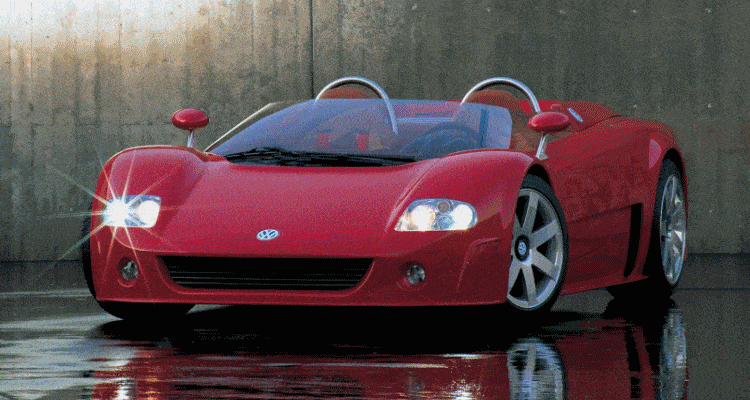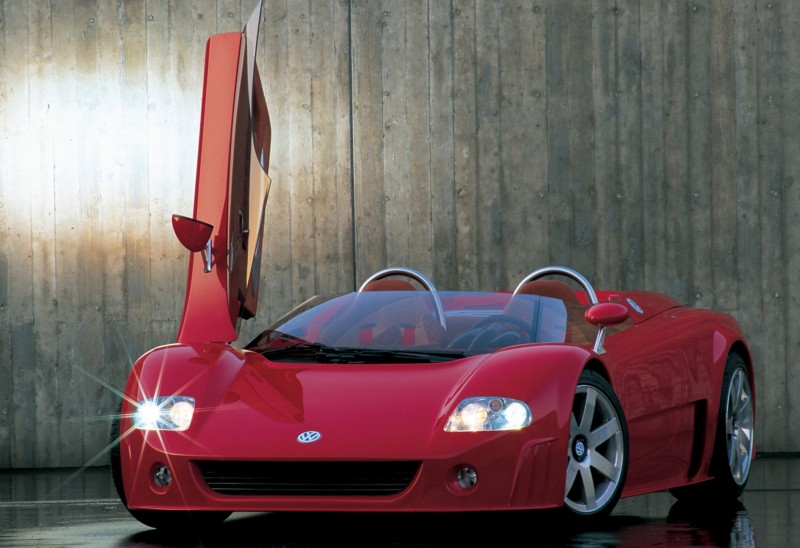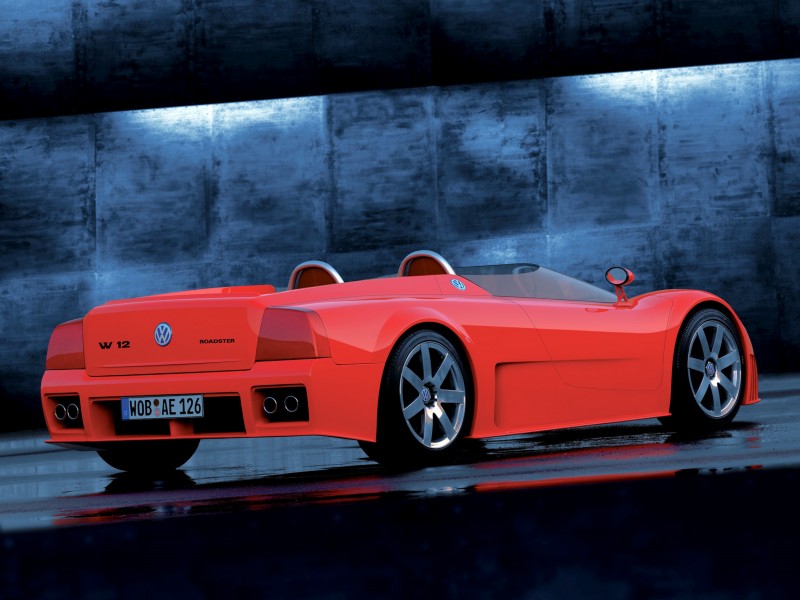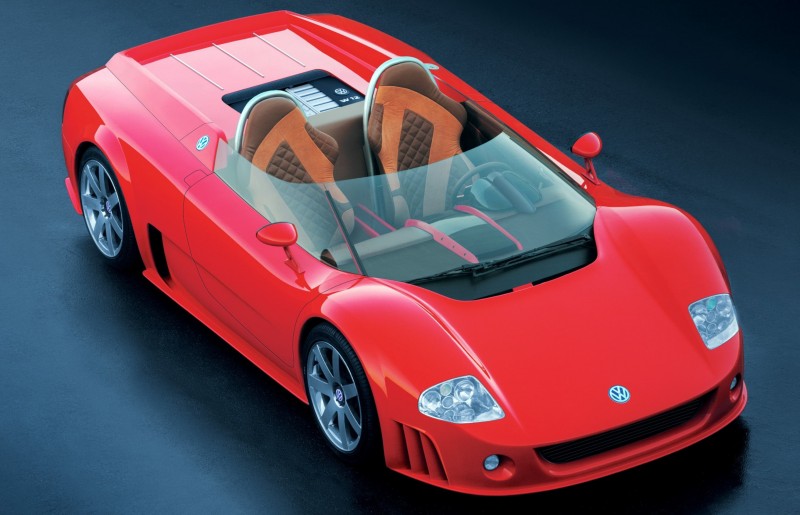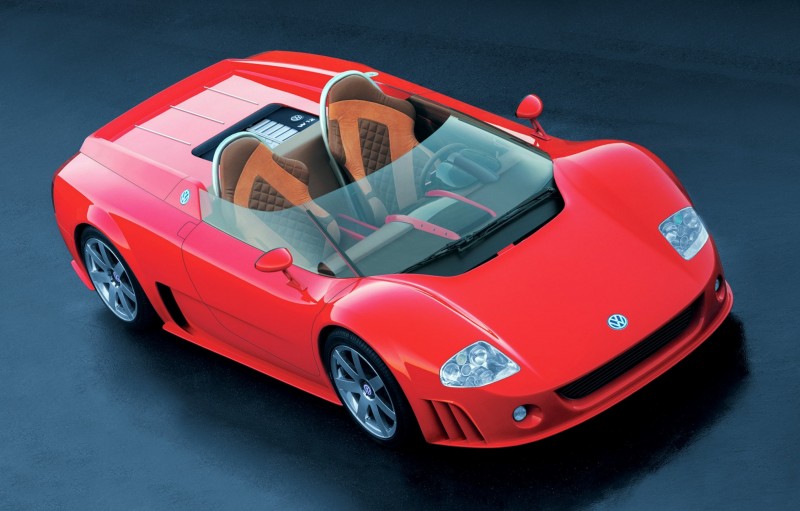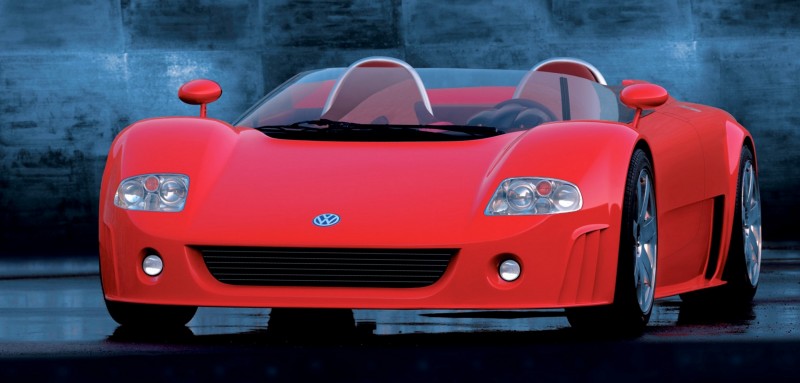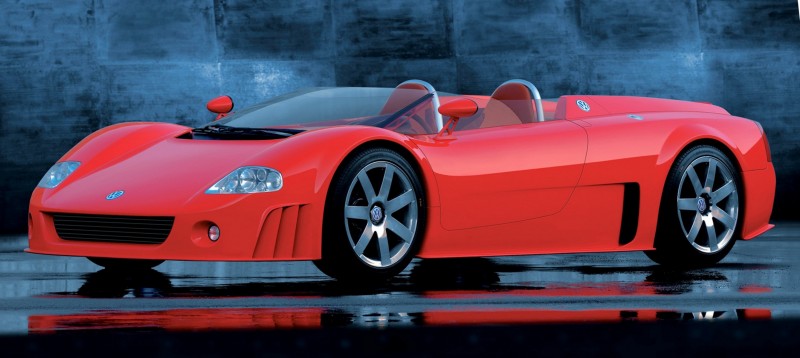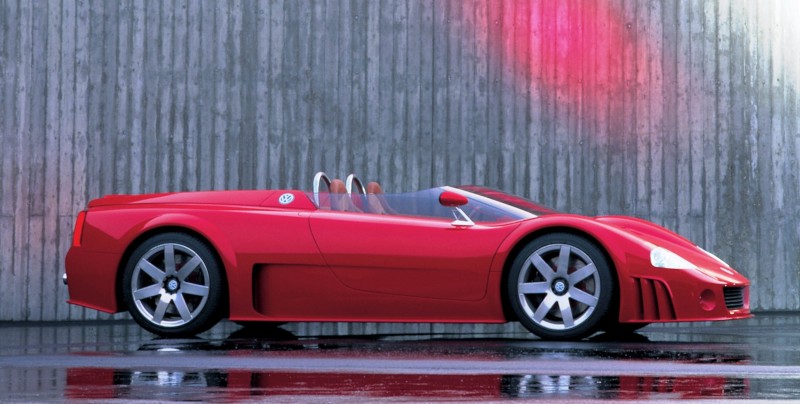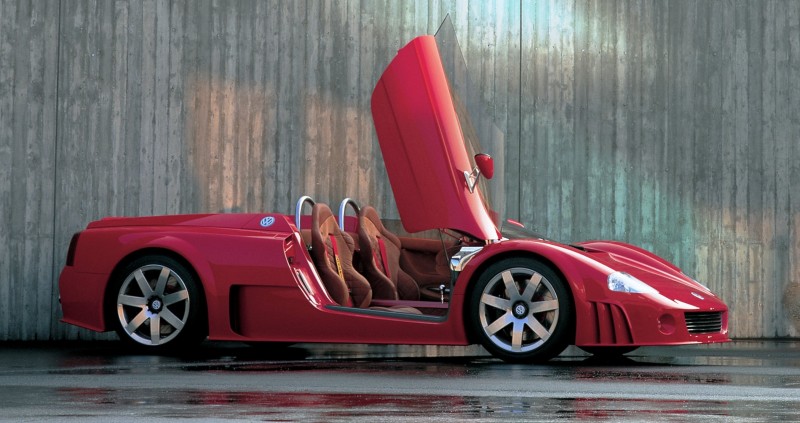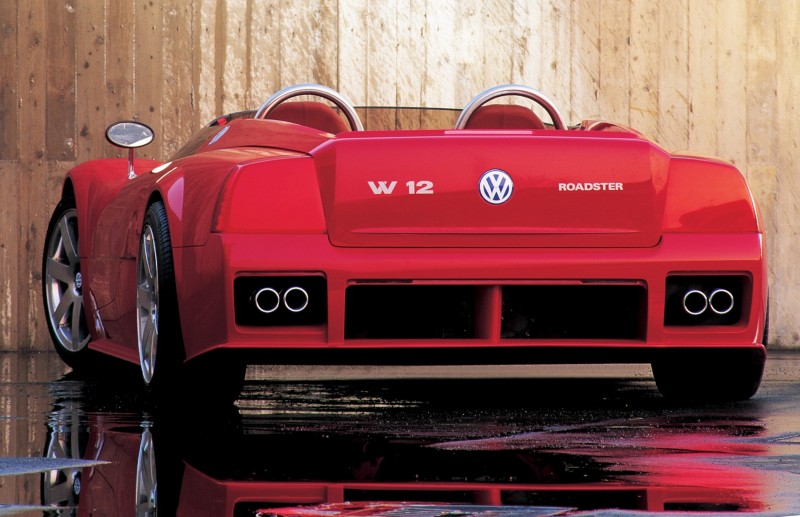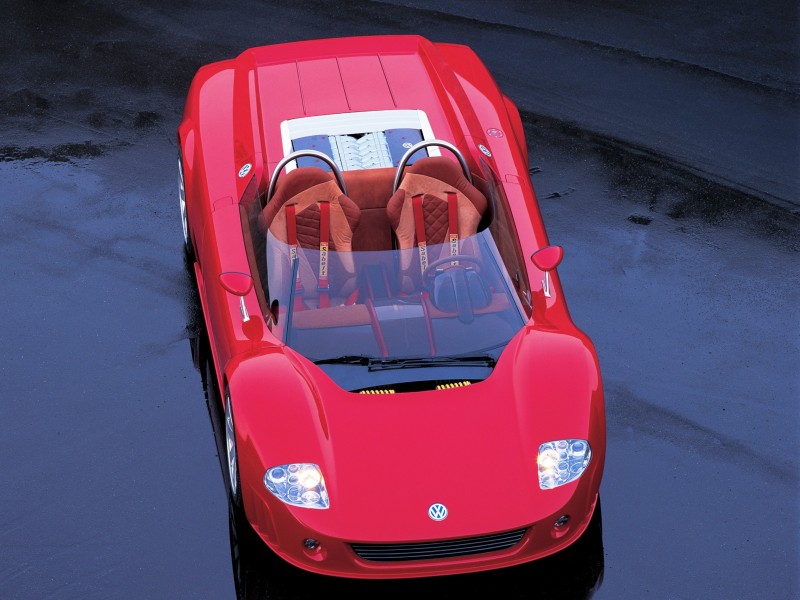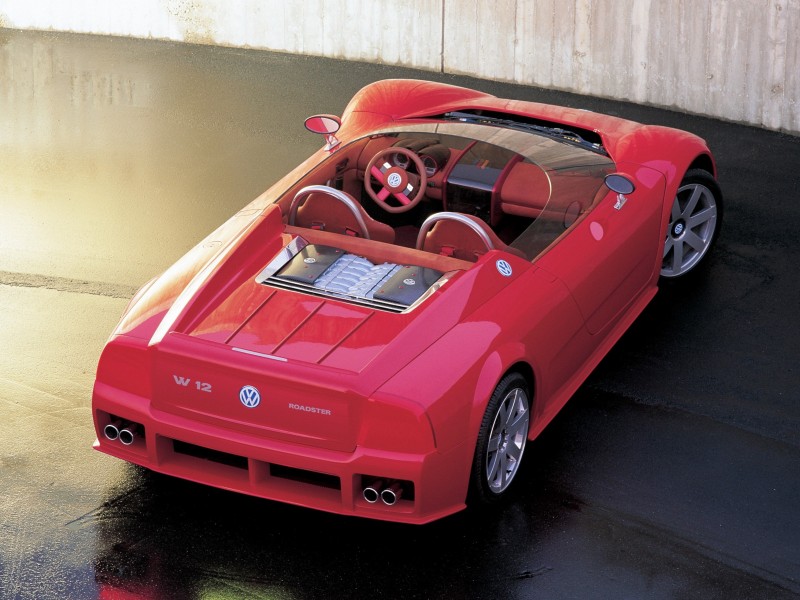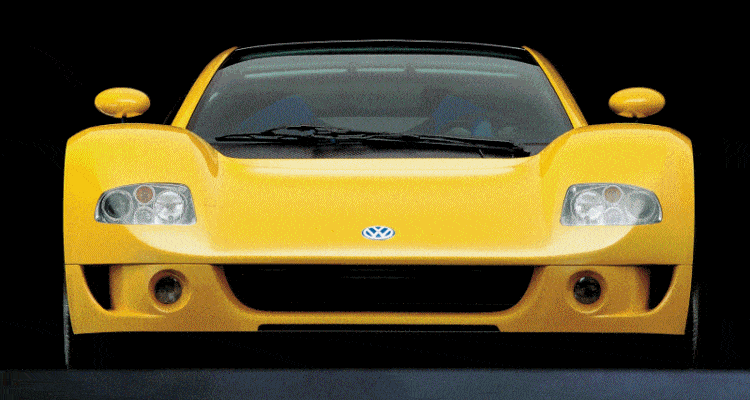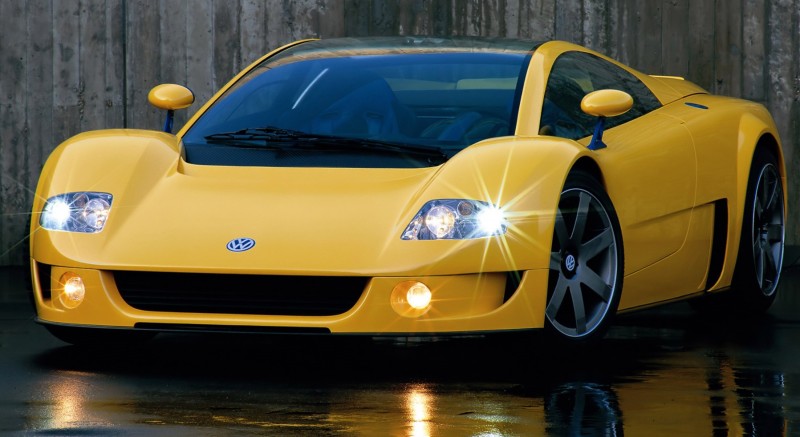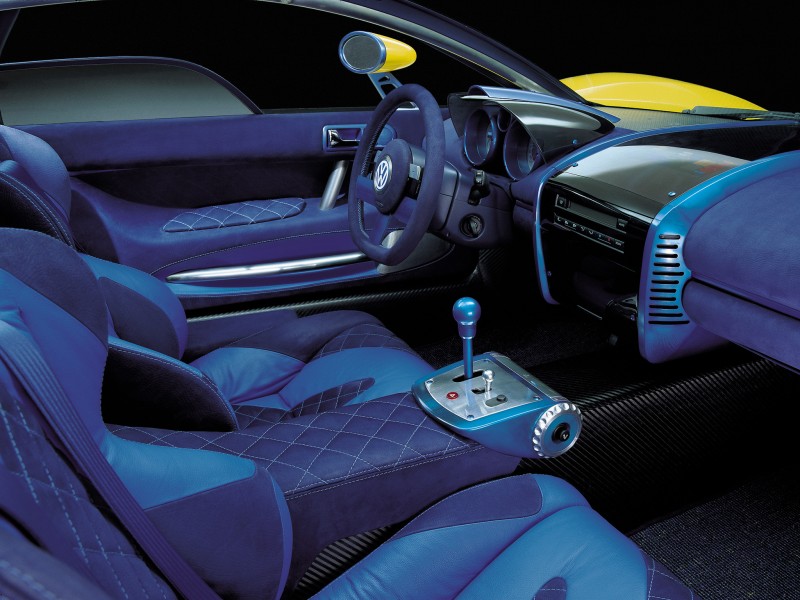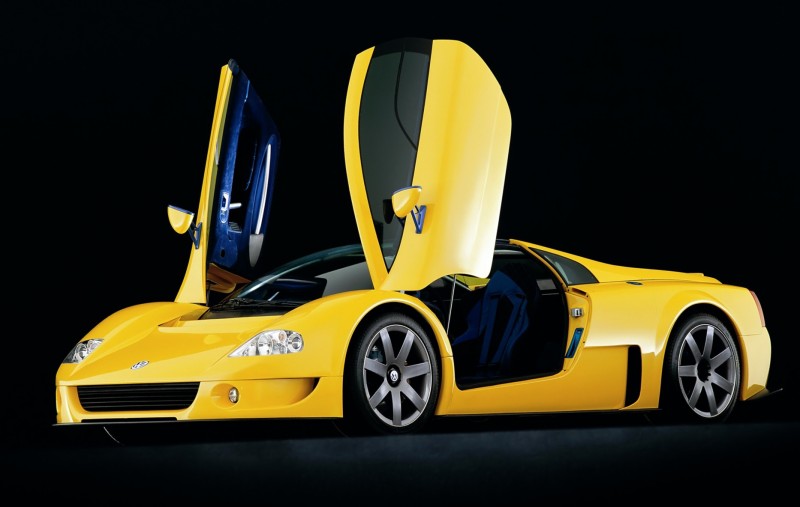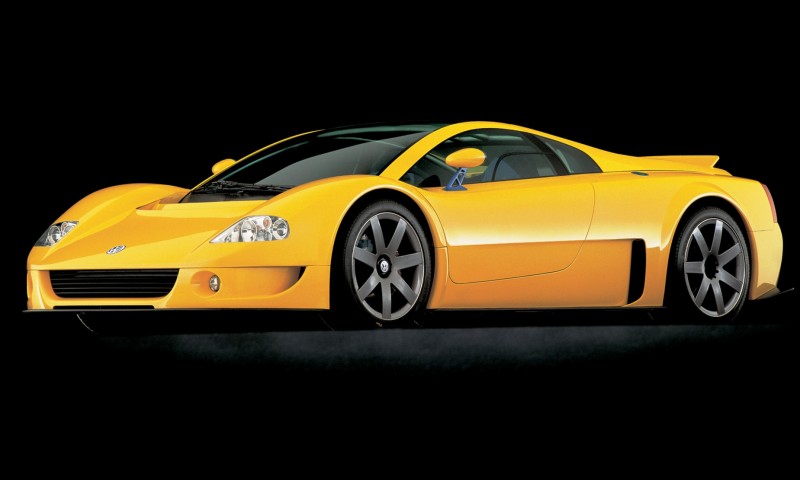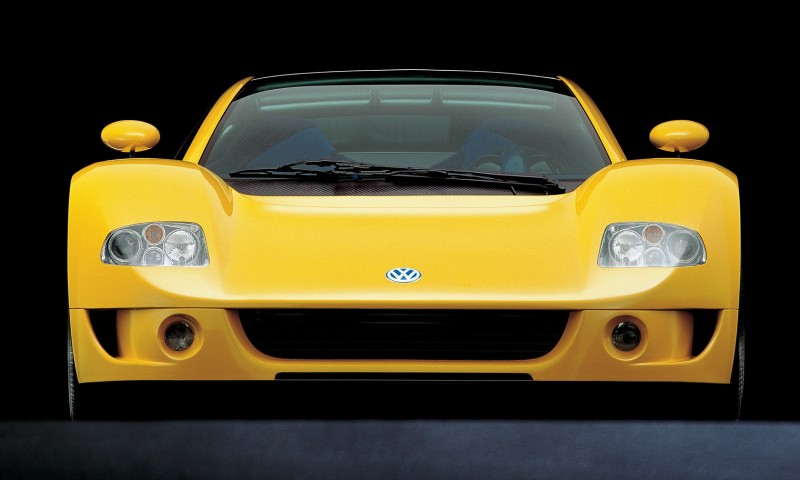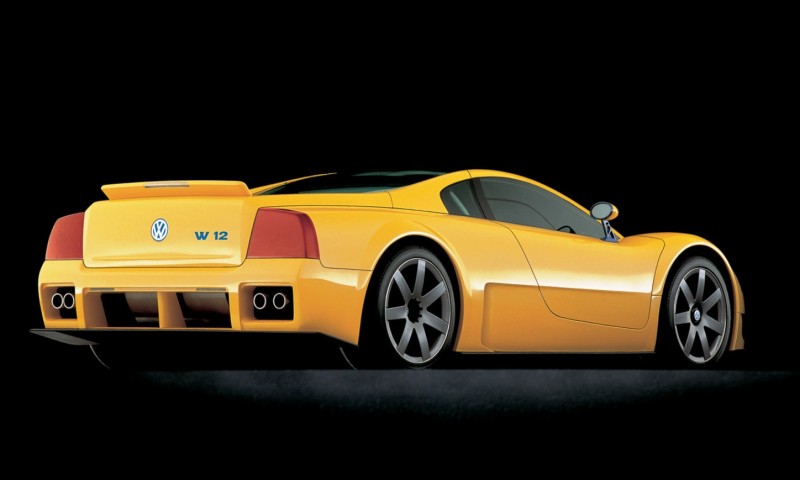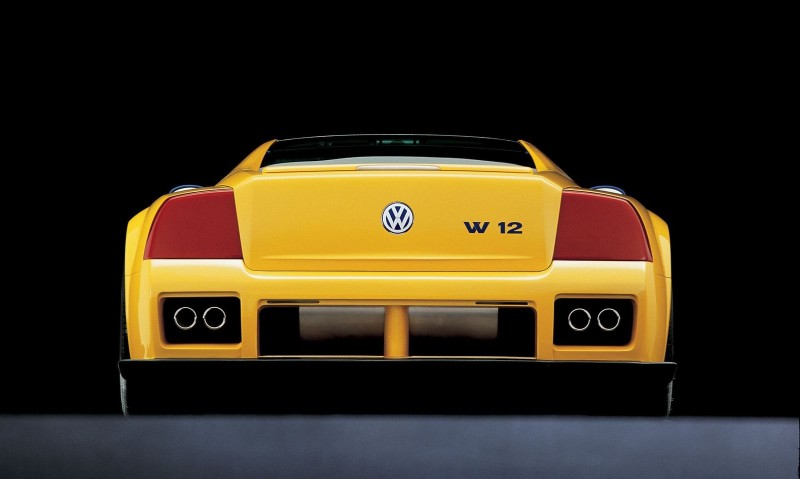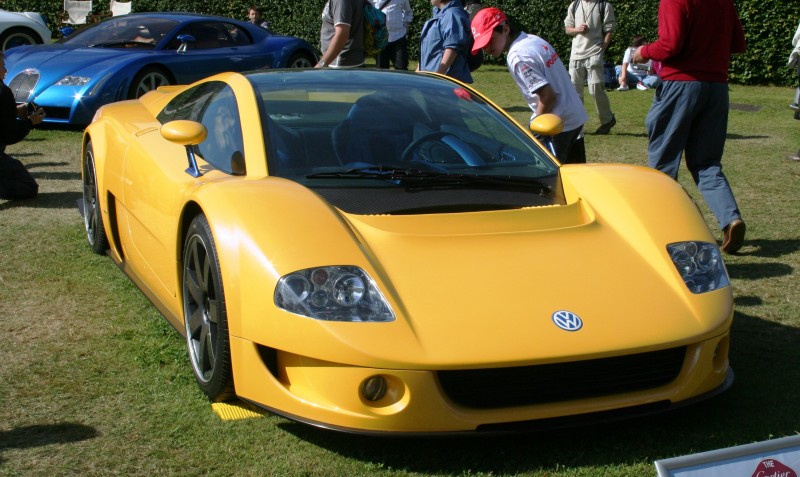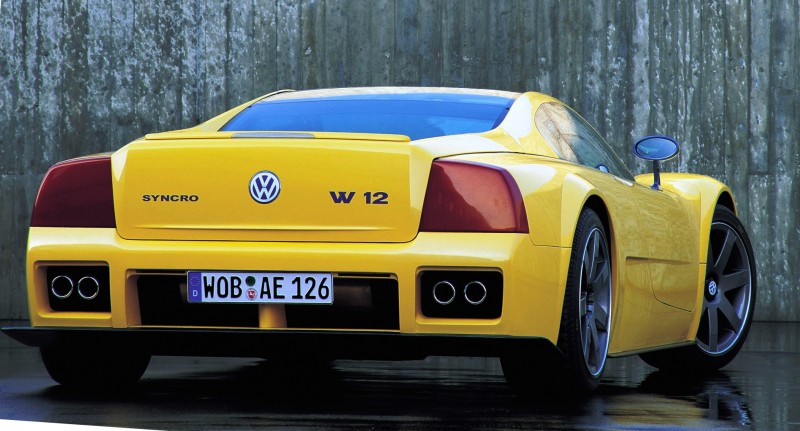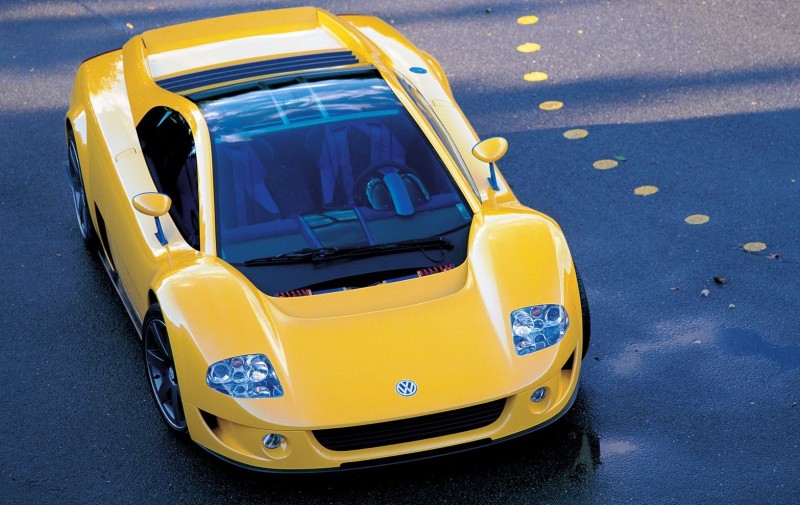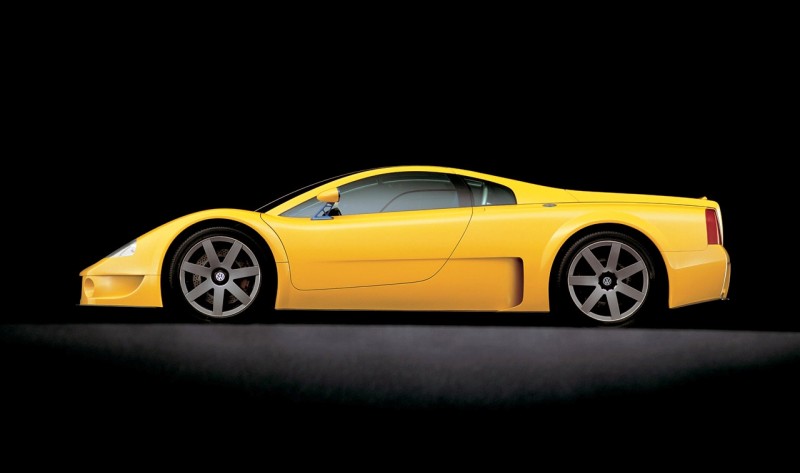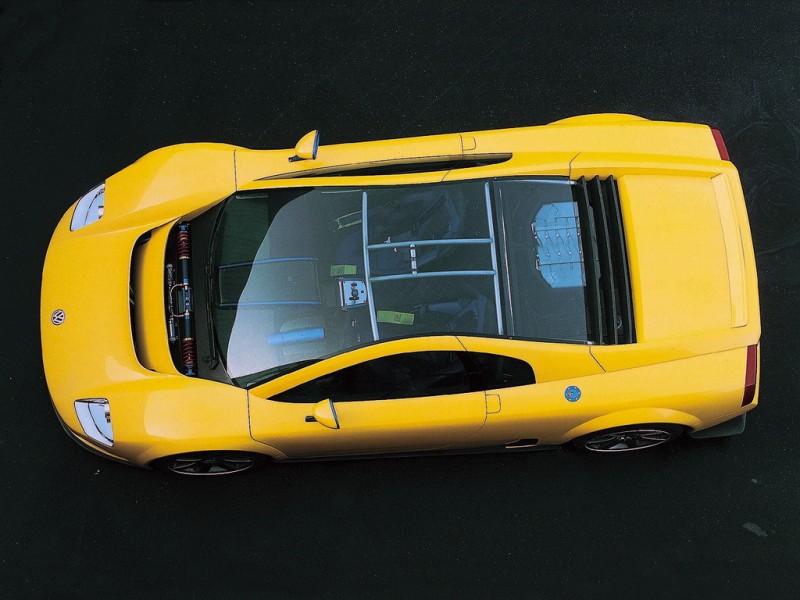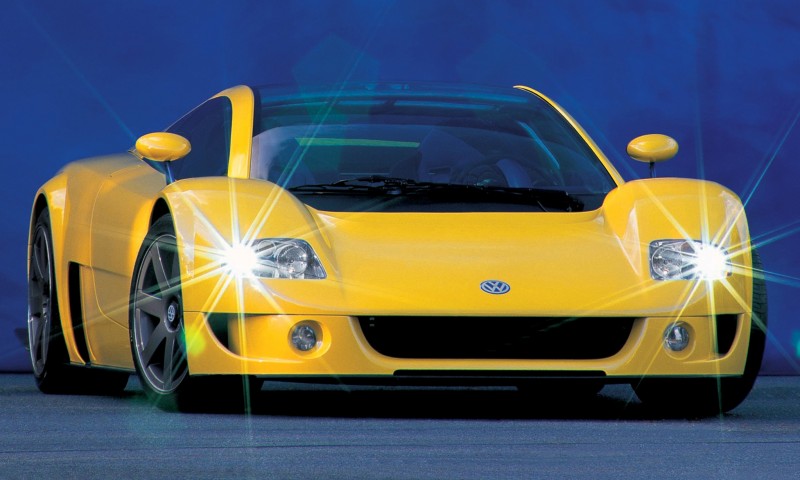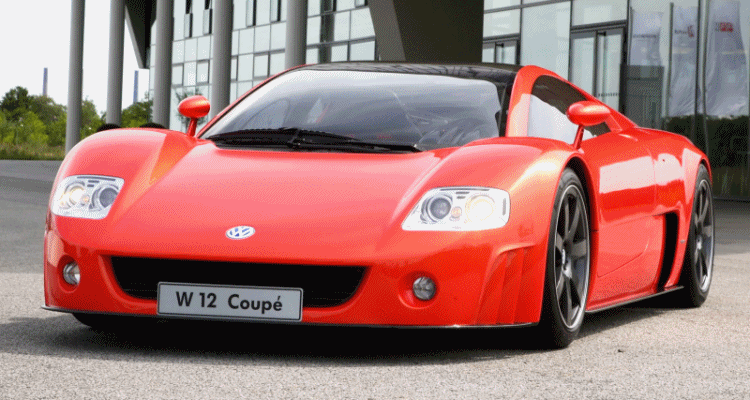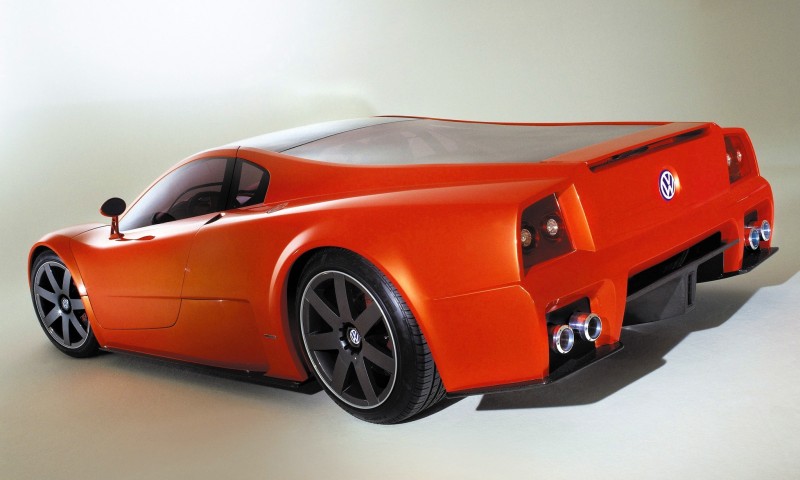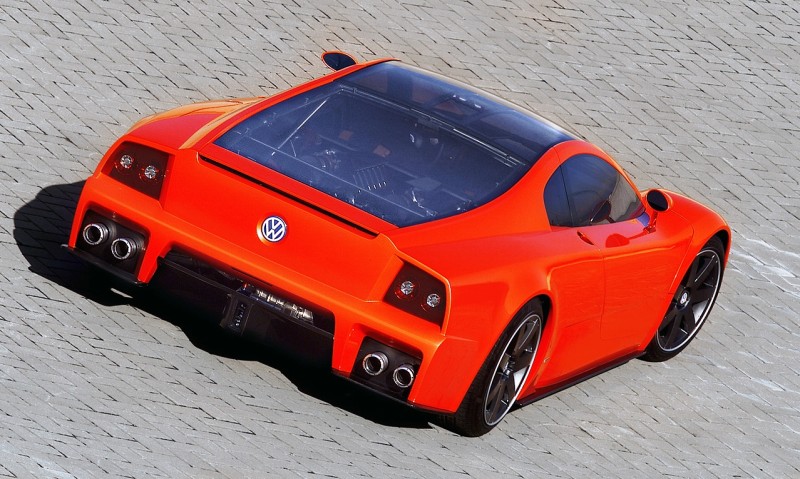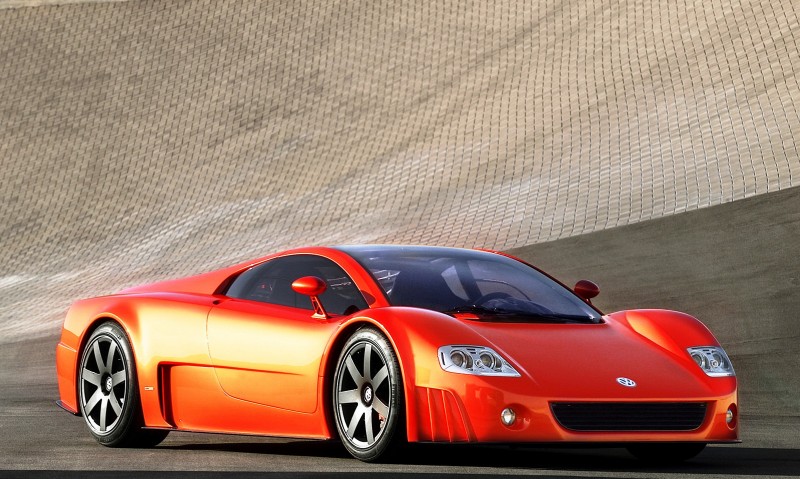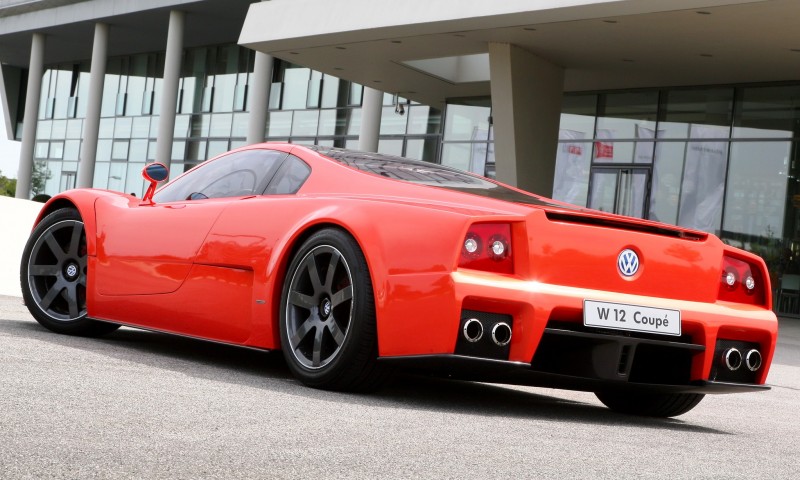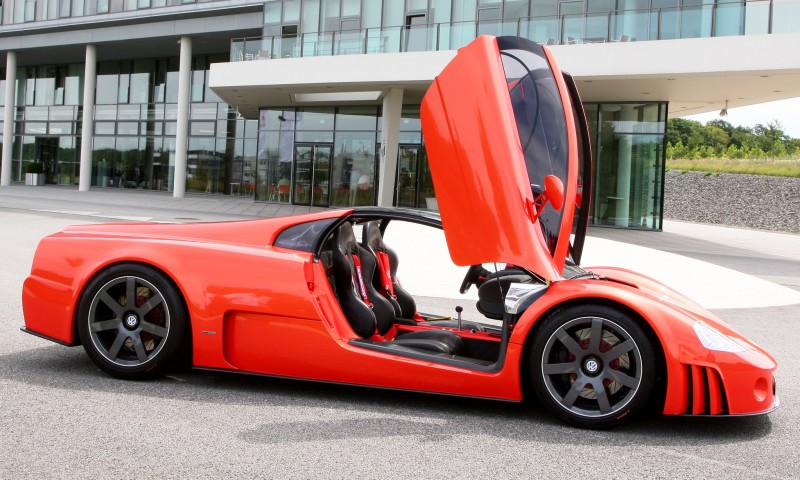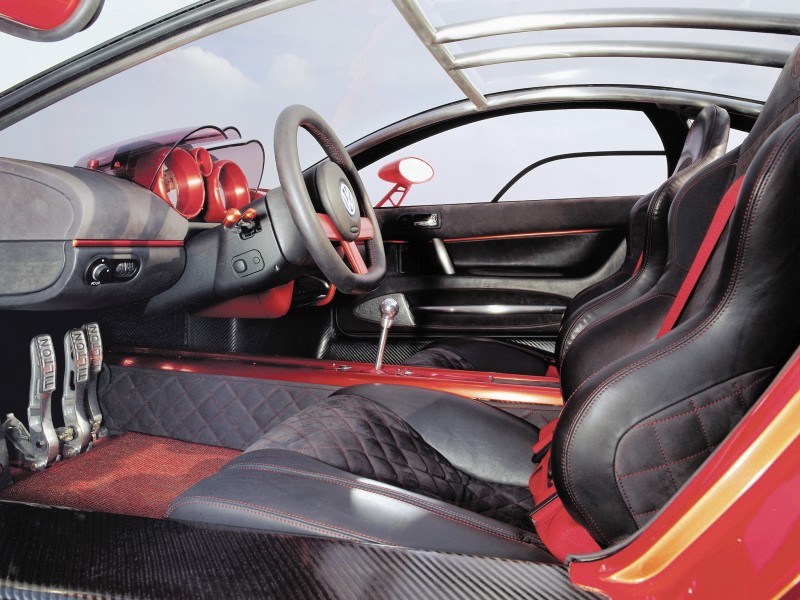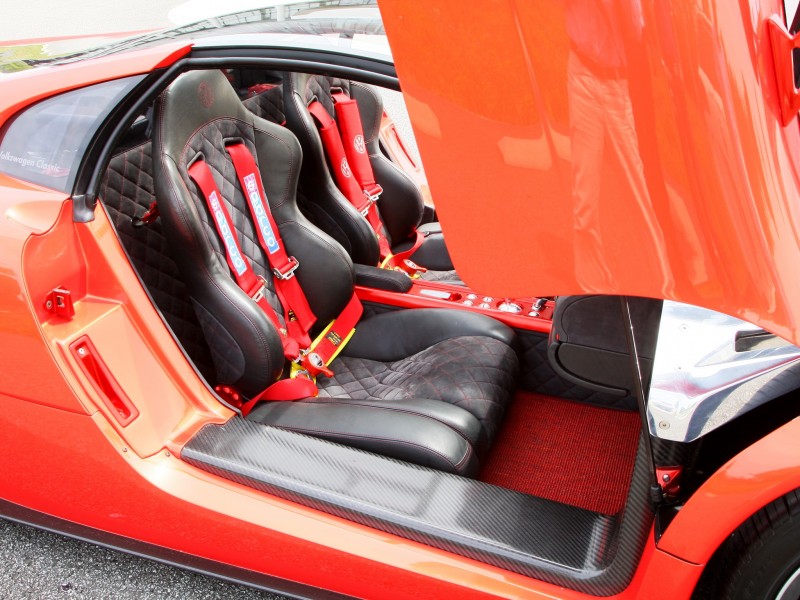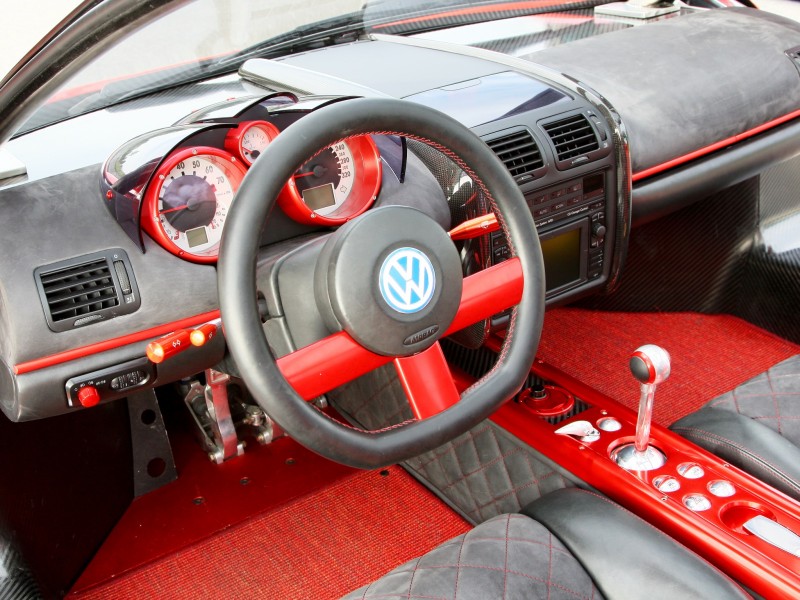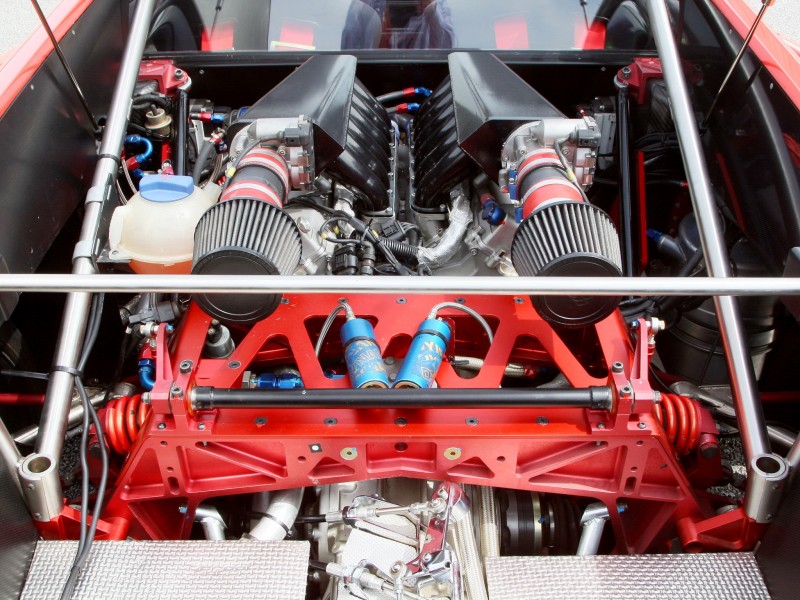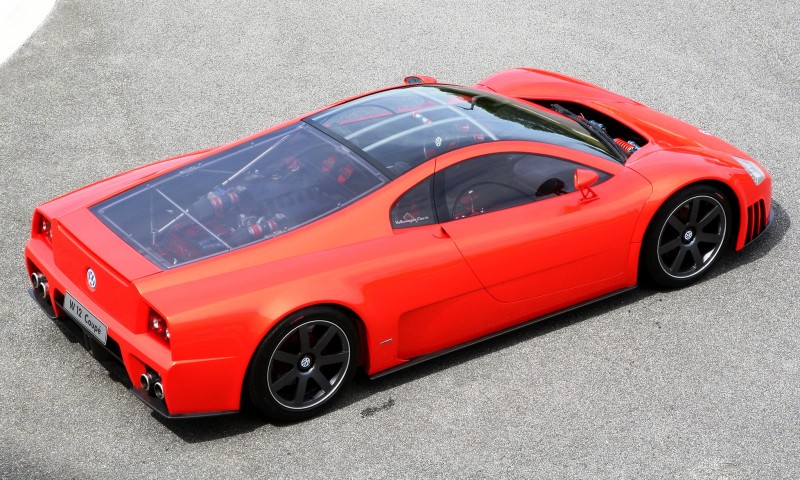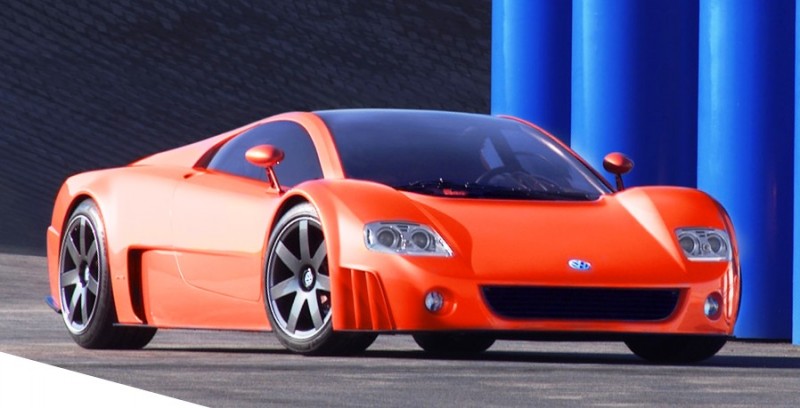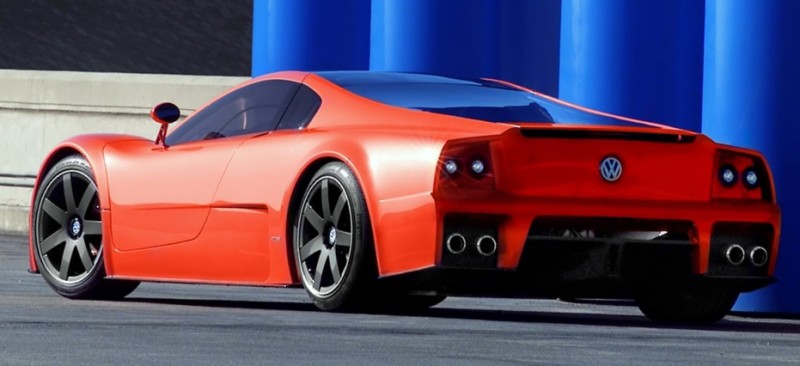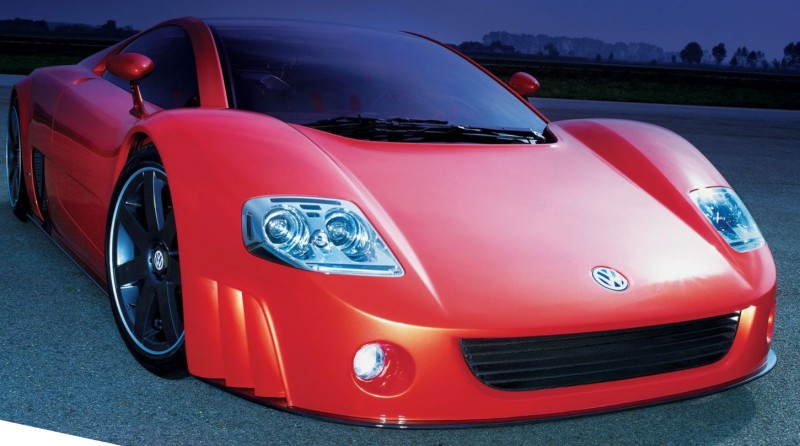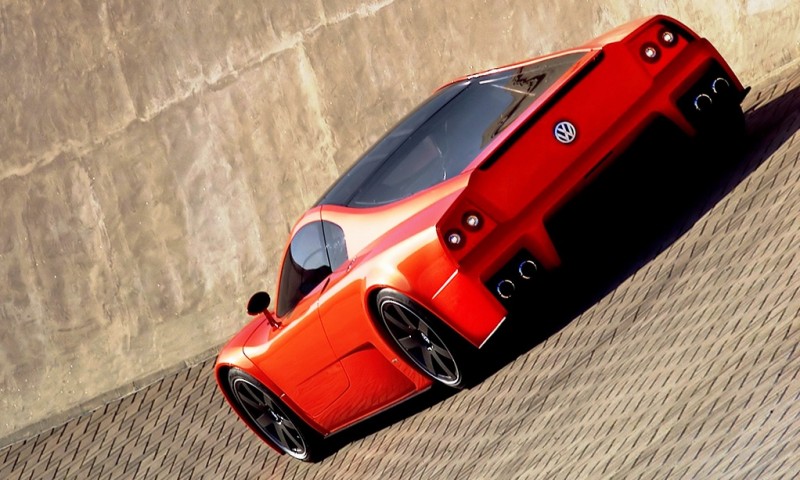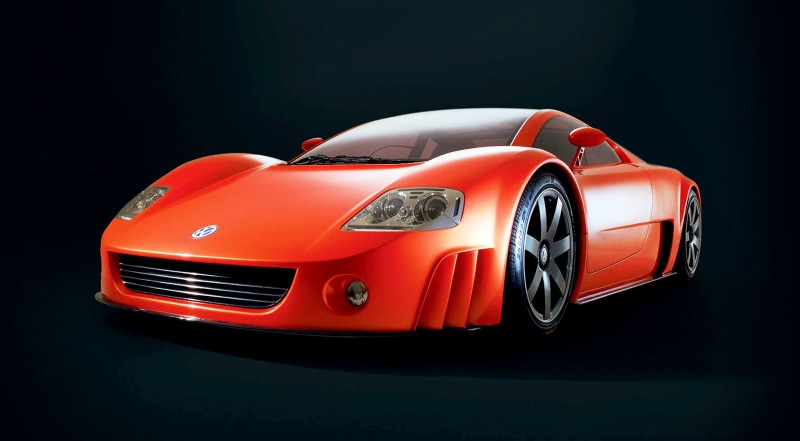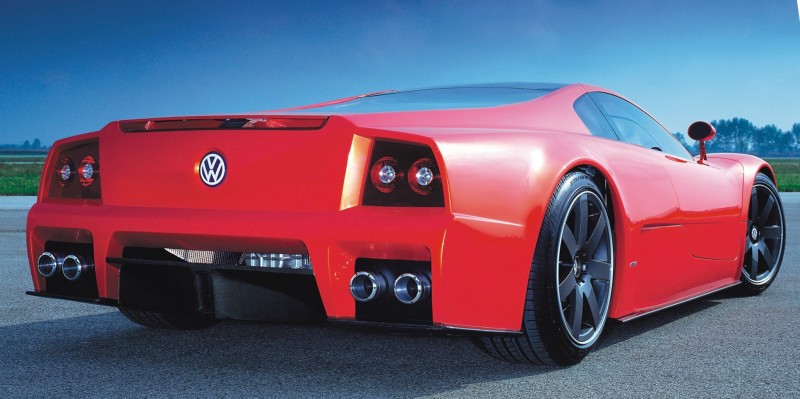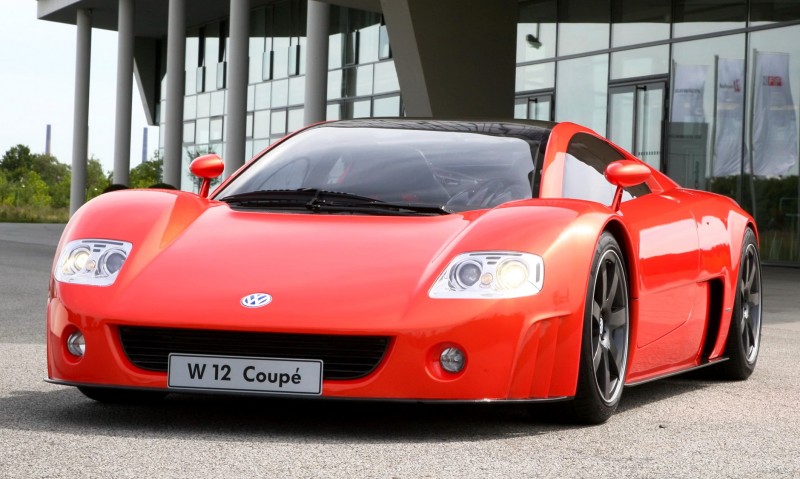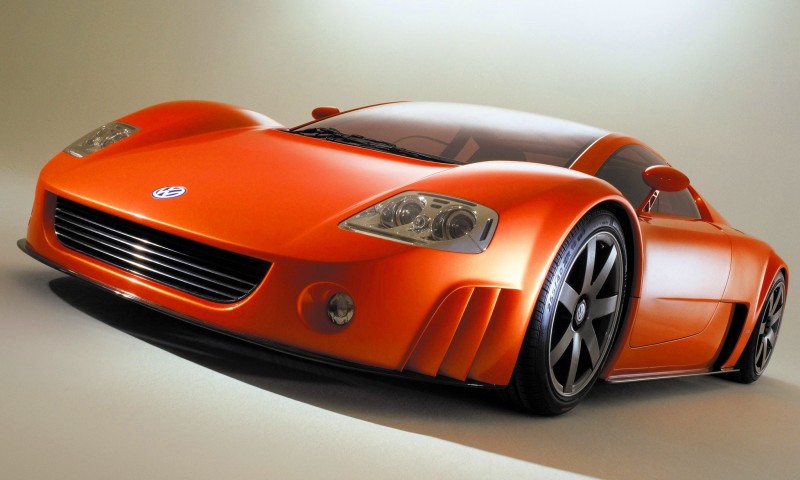Part three of the VW W12 saga: the W12 Roadster. Gorgeous and finely resolved, the W12 Roadster finally solved the quadry of the ugly rear engine cover and funky side window issues of the coupes.
1998 Volkswagen W12 Roadster
 Recapping the VW W12 concept saga has been extremely perplexing, with numerous mistakes and edits in the first article below.
Recapping the VW W12 concept saga has been extremely perplexing, with numerous mistakes and edits in the first article below.
In fact, the yellow W12 SYNCHRO was the first of the three W12 concept cars.
This example, designed by ItalDesign Giugiaro, is actually far more thoroughly engineered on a production design level than the final W12 NARDO Coupe in orange.
This can be seen in the actual production body panels, which were eliminated in the one-piece shell of the orange record-holder car. Other details are also up to Volkswagen Piech standards, leading one to think the car could actually see showrooms one day soon.
More than anything, this 4WD design served to introduce the W12 engine in a fabulous way.
Secondarily, the project was a critical research phase of what eventually became the Bugatti Veyron.
ItalDesign Volkswagen W12 Syncro
The W12 Syncro, introduced at the Tokyo International motor show in 1997 was the first stage of a 5-year-long project created around the new 5.6 litre Volkswagen W12 engine.
Ferdinand Piëch, chairman of the Volkswagen group was responsible for commissioning Italdesign Giugiaro to take on a project aiming to enhance the performance of the new engine developed in Wolfsburg, the W12.
“For once – explained Giorgetto Giugiaro – I did not concentrate on the body when designing this prototype: I put together a casing, a shell around the central engine, which I left on view to emphasise its importance and enhance performance levels”.
1997 Volkswagen W12 SYNCHRO
PREVIOUS
The first of three W12 Volkswagen supercars is clearly the least-impressive — both in terms of its design and overall levels of finish.
The messiest portion of the design is the back glass, which VW designers struggle to make elegant or look like a hypercar should. The huge size of the new W12 engine is obviously a challenge in its packaging, despite taking only a bit more room in a front-engine car than a normal V8.
But the ethos of a giant Passat-infused hypercar is nonetheless very striking to showgoers who have seen nothing as low, wide or fast as this W12 Coupe wearing a VW badge.
At the same time that the W12 Coupe loses points for its unfinished exterior and cabin fittings, there was also something refreshingly pure about the clean surfaces. This ultra clean style was the antithesis of the COuntach and Diablo aesthetic that had long dominated the hypercar discussion. A simple roll-cage and plexiglass roof panel is evidence of the new idea for hypercars, even if it would take another two tries to get to the near-production level of finish seen on many VW Group concepts.
The W12 Coupe clearly signalled a return to pure hypercar performance as both an R&D and marketing tool — and for that alone is very memorable as a result.
1997 2001 Volkswagen W12 NARDO Coupe Concept
ItalDesign Details
W12 Nardò
A W12 named after the high speed track on which all speed records were to be beaten in 2002.
On 14 October 2001, the W12 Nardò, a development of the first model dating from 1997, beat the 24-hour race speed records.
The W12, equipped with a 660 hp 12 cylinder engine, covered a distance of 7085.7 km at an average speed of 295.24 km/h, beating the previous record of 12 km/h.
Even though the W12 Nardò was not prepared for establishing a long distance record, it nevertheless set two further records (over 5000 km and 5000 miles) and 6 international category records.
Records that were broken the following year by the W12 Record.
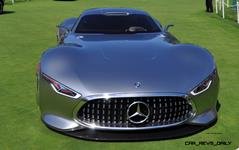
Tom Burkart is the founder and managing editor of Car-Revs-Daily.com, an innovative and rapidly-expanding automotive news magazine.
He holds a Journalism JBA degree from the University of Wisconsin – Madison. Tom currently resides in Charleston, South Carolina with his two amazing dogs, Drake and Tank.
Mr. Burkart is available for all questions and concerns by email Tom(at)car-revs-daily.com.

